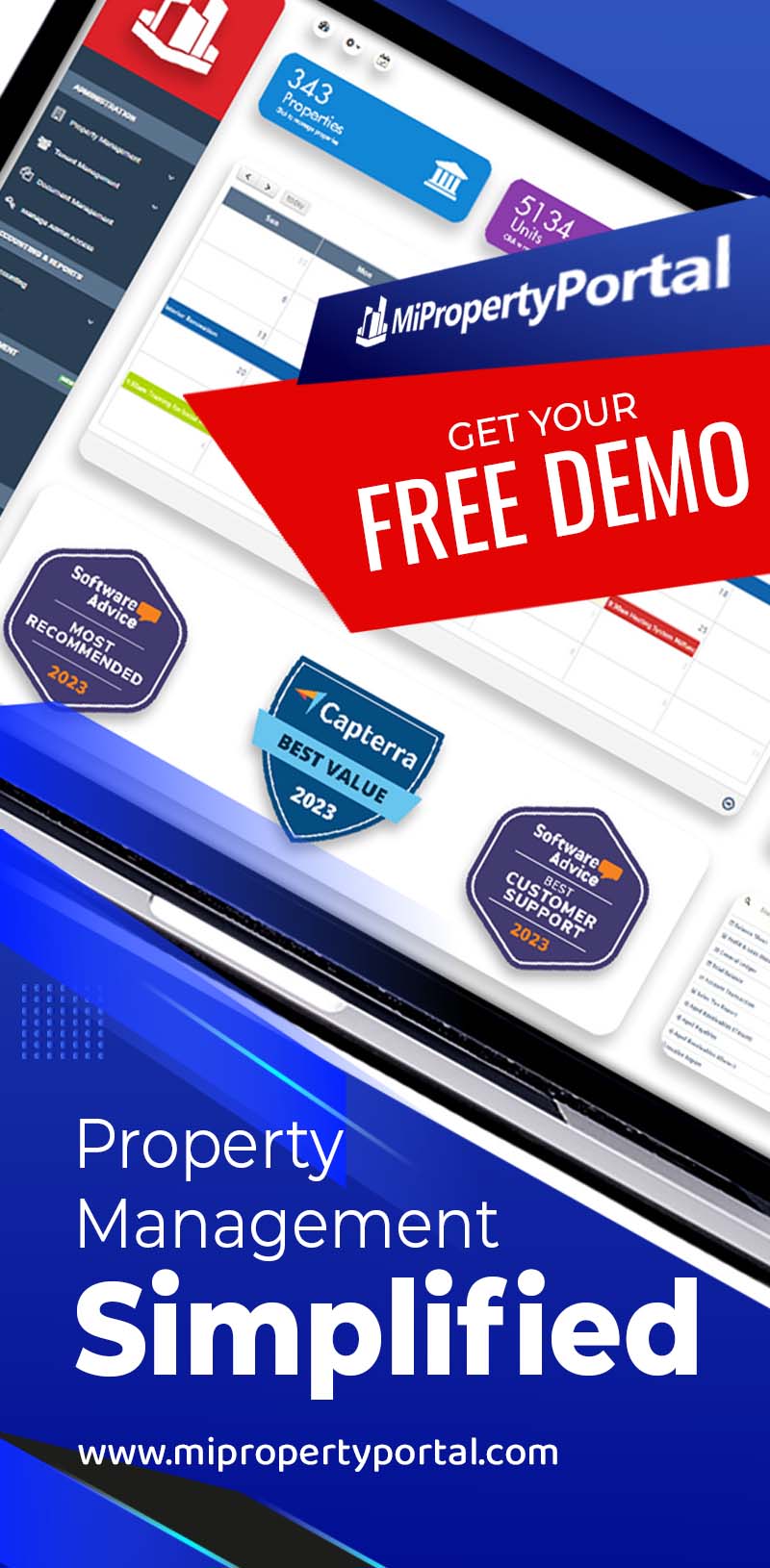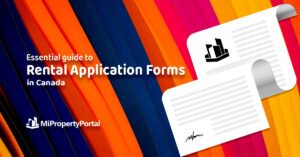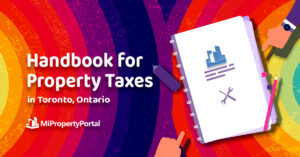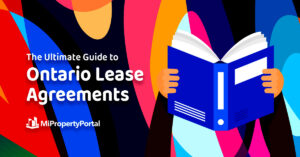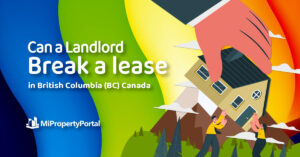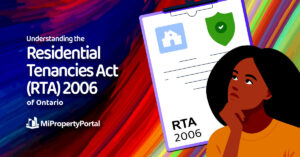Property Taxes in Toronto, Ontario
Municipal governments levy property taxes on real estate within their jurisdiction. These taxes are a vital source of revenue for funding local services such as schools, roads, public safety, and infrastructure development.
Property taxes in Toronto, Ontario, are crucial for landlords and tenants. While tenants don’t directly pay property taxes, they may indirectly bear the burden through their rent. This comprehensive guide delves into the key aspects of property taxes in Toronto and how they impact landlords and tenants.
The City of Toronto’s Tax Department
The Tax Department of the City of Toronto is responsible for managing and administering property taxes within the municipality.
Toronto Property Tax Calculation
Property taxes in Toronto are calculated annually based on the property’s assessed value. The Municipal Property Assessment Corporation (MPAC) assesses the value of properties in Ontario.
This assessment considers factors such as location, size, and property condition. Once the assessment is complete, the municipality uses this value to calculate the property tax bill.
In addition to municipal taxes, property owners in Toronto are also responsible for Education Taxes and City Building funds imposed by the provincial government.
Calculate your property tax with the online property tax calculator offered by the City of Toronto’s website.
Property Tax Bills and Payments
Toronto residents encounter two tax bills throughout the year which are:
The Interim Tax Bill
It is typically issued in January. This initial bill is calculated based on 50% of the previous year’s taxes, with adjustments made for any supplementary or omitted taxes from the preceding year.
The City of Toronto offers a preliminary assessment based on the tax rate from the previous year before finalizing the tax rates for the current year.
The Final Tax Bill
The final tax bill is issued in May after the City’s budget is approved and the tax rates are established. It is calculated based on the current year’s assessed property value multiplied by the prevailing tax rate, subtracting the amount billed on the interim bill.
Paying in Installments
Both the interim and final tax bills are structured to ease property owners’ financial burdens. With multiple installment options, the due dates are strategically spread throughout the year.
Supplementary Tax Bills
Supplementary tax bills arise from an increase in a property’s assessed value. These increases are usually improvements, renovations, or additions that are often not reflected in the original assessment.
Omitted Tax Bills
Omitted tax bills may be issued for properties that were not assessed in a given year. These bills cover the current year’s taxes and those from the two preceding years.
Late Property Tax Payments
In Toronto, failing to meet property tax deadlines can cause penalties, interest accruals, and supplementary charges.
Penalties
Penalties are charged at a rate of 1.25% from the due date. These penalties snowball monthly until the outstanding dues are settled.
Charges
Supplementary charges may be levied based on specific actions, such as final notices or processing bounced checks.
Legal Actions
Persistent late payments and accumulation of tax arrears might trigger the municipality to take legal action for tax recovery. This can add more legal expenses, further increasing the financial strain on the property owner.
Property Seizure
Look for a property management company with a proven track record of success and a strong reputation in the industry. Consider their experience in managing properties similar to yours and inquire about client testimonials or references.
Tax Exemptions and Rebates
Landlords are eligible for certain tax deductions to help reduce the financial burden of property taxes. For example, property maintenance, mortgage interest, repairs, and utilities expenses may be deductible against rental income.
Additionally, landlords may qualify for rebates or reductions in property taxes for eligible properties, such as those designated as heritage properties or affordable housing units.
Toronto provides a range of exemptions and rebates aimed at alleviating the tax burden for eligible property owners. These include:
1. Property Tax Rebate for Seniors
Seniors aged 65 or older may be eligible for a tax rebate to help alleviate the financial strain of property taxes.
2. Charitable Organization Exemptions
Properties owned by registered charities have the opportunity to apply for exemptions from property taxes. This allows them to allocate more resources toward their charitable endeavours.
3. Vacancy Rebates
Owners of certain types of vacant commercial and industrial properties may qualify for tax rebates, providing relief during periods of vacancy and encouraging property utilization.
Learn more about Toronto Property Tax with our detailed article Understanding Toronto Property Tax: Everything You Need to Know.
Disputing Property Tax Assessments
Identifying Grounds for Dispute
Disputing a property tax assessment requires valid grounds supported by evidence. Common reasons for disputing assessments include errors in property classification, discrepancies in property valuation, or evidence of property damage affecting value.
Initiating the Dispute Process
Disputing a property tax assessment requires valid grounds supported by evidence. Common reasons for disputing assessments include errors in property classification, discrepancies in property valuation, or evidence of property damage affecting value.
Identifying Grounds for Dispute
The City of Toronto’s Tax Department provides a formal process for disputing property tax assessments. Property owners can initiate the dispute by filing a Request for Reconsideration (RFR) form.
Furthermore, this form must be accompanied by supporting documentation such as recent property appraisals, sales data of comparable properties, or evidence of property damage.
Engaging in Mediation or Arbitration
Upon receiving the RFR, The City of Toronto’s Tax Department may offer mediation or arbitration as alternative dispute resolution methods. These processes involve impartial third parties to facilitate negotiations between the property owner and tax assessor to reach a resolution.
Appealing to the Assessment Review Board
If mediation or arbitration fails to resolve the dispute satisfactorily, property owners have the option to appeal to the Assessment Review Board (ARB). The ARB is an independent tribunal tasked with adjudicating property assessment disputes in Toronto.
Presenting Evidence and Arguments
During the ARB hearing, property owners have the opportunity to present evidence and arguments supporting their case for a reassessment. This may include expert testimony, financial documents, or any other relevant evidence demonstrating the validity of the dispute.
Receiving the ARB Decision
Following the hearing, the ARB will issue a decision either upholding the original assessment, adjusting the assessment based on the evidence presented, or ordering a reassessment by The City of Toronto’s Tax Department.
Residential Property Tax Rate for Toronto Ontario (2018 to 2023)
| Year | Municipal Rate | Educational Rate | Final Tax Rate |
|---|---|---|---|
| 2023 | 0.51% | 0.15% | 0.67% |
| 2022 | 0.47% | 0.15% | 0.63% |
| 2021 | 0.45% | 0.15% | 0.61% |
| 2020 | 0.44% | 0.15% | 0.60% |
| 2019 | 0.45% | 0.16% | 0.61% |
| 2018 | 0.46% | 0.17% | 0.64% |
Introducing MiPropertyPortal
The Best Property Management Software for Property Management Companies in Canada
MIPorperty Portal (MIPP) is an all-in-one property management software solution for property managers, real estate investors and landlords in Canada. MIPP comes with numerous features:
- Tenant Screening
- Lead Management
- Online Rent Application (Free)
- Tenant Background Check and Credit Check
- Property Management Accounting and Reporting
- Assistance with compliance requirements
- Maintenance Tracking
- Online Rent Collection
- Vendor & Supplier Management
- Property Inspection
- Automated Form
- Storage & management of communications
- Automated Lease Creation
- And many more…
Why should you choose MIPP? MIPropertyPortal can take your property management business to the next level. It will automate much of your property management business while you focus on generating revenue.
Get a free property management demo, or contact us to explore more.
The software is also available on the App Store or Google Play to manage your property on the go.
Conclusion
Understanding property taxes is needed to ensure compliance and effective financial management. Landlords should manage their property tax obligations carefully to maintain profitability. Tenants should be aware of how property taxes impact their rental costs.
For additional information on property taxes in Toronto, you can visit the City of Toronto’s Property Tax webpage. For assistance with tax planning and compliance, consider consulting with an accounting firm specialized in real estate taxation.
Frequently Asked Questions (FAQs) About Property Taxes in Toronto
Property taxes in Toronto are calculated based on the assessed value of the property, which is determined by the Municipal Property Assessment Corporation (MPAC).
Yes, landlords in Toronto may be eligible for tax deductions on expenses related to their rental properties, including property taxes, subject to certain conditions.
Landlords who disagree with their property tax assessment in Toronto can appeal the assessment through the Municipal Property Assessment Corporation (MPAC) or seek legal assistance if necessary.
Yes, landlords in Toronto may qualify for tax incentives, such as deductions for energy-efficient upgrades or renovations to their rental properties.
Failure to pay property taxes on time can result in penalties, interest charges, and, in extreme cases, legal action such as a tax lien or foreclosure.


